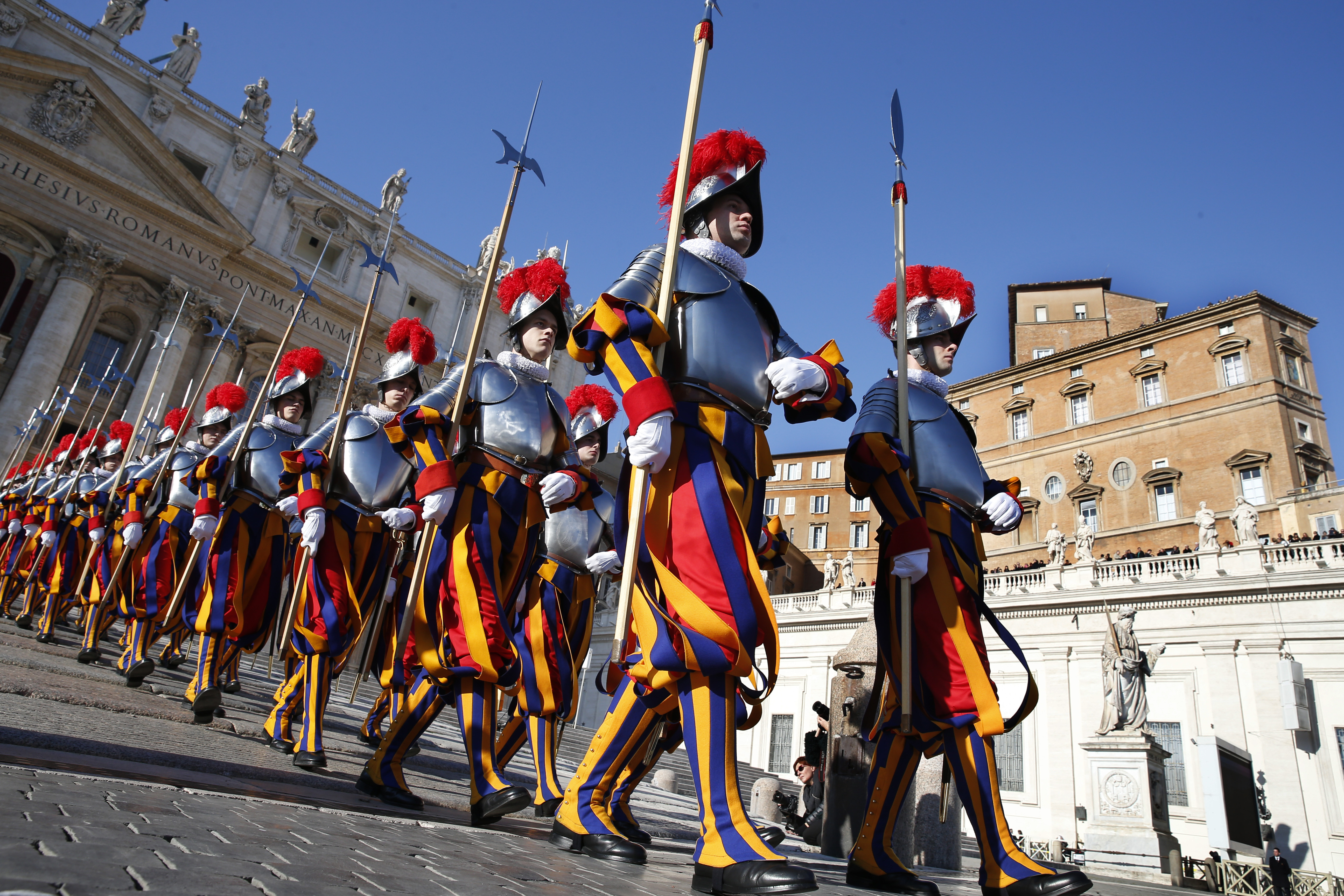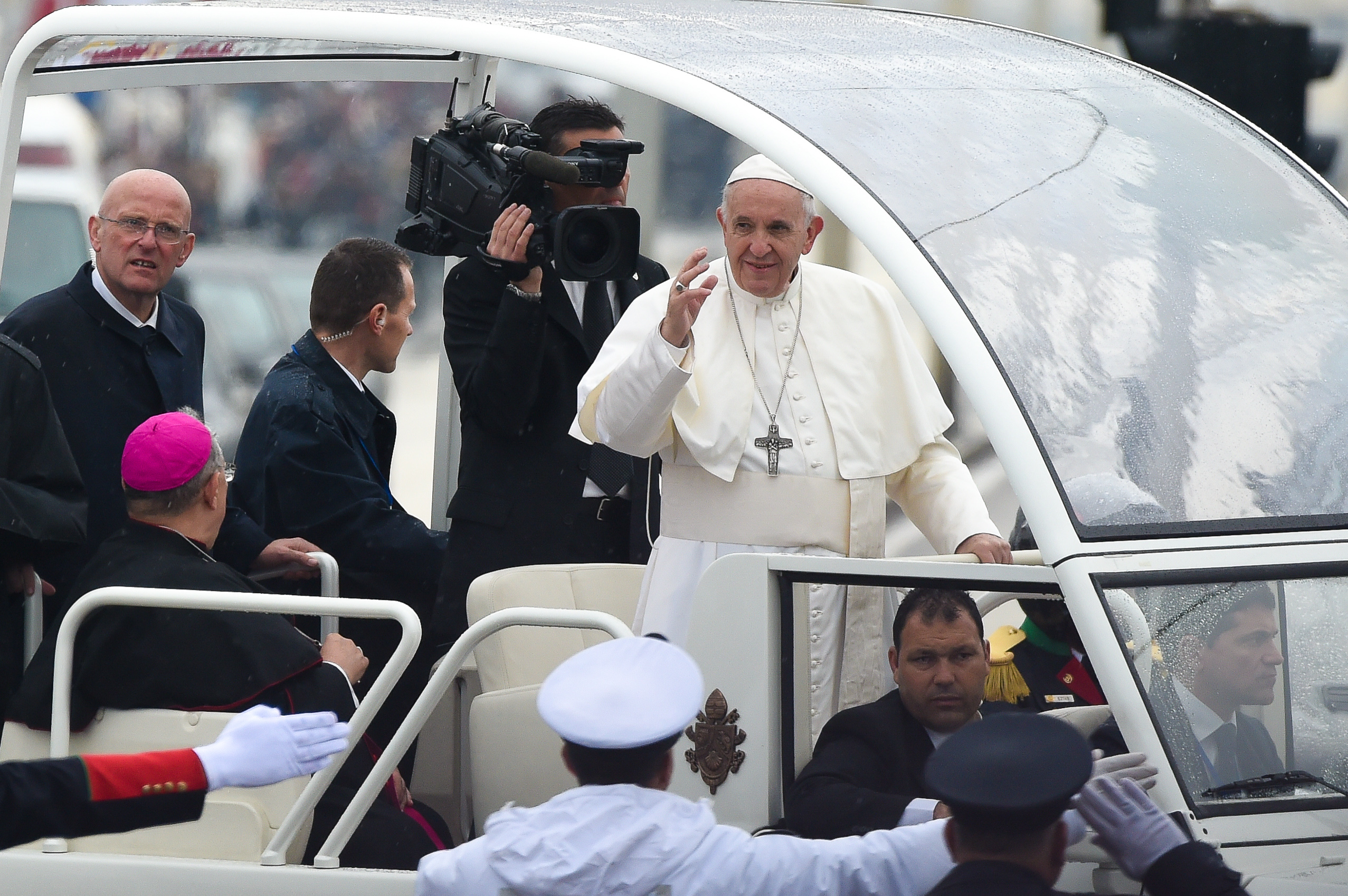Pope Francis used the first day of a visit to Morocco to showcase how his pontificate is becoming a bulwark against political forces which combine a closed-door policy to migrants with hostility to Islam.
During his 27-hour trip to the Muslim-majority country, the Pope told a group of migrants they were at the “centre of the Church’s heart” while urging Muslims and Christians to join forces to counter “fanaticism and extremism” and to stand firm against the exploitation of their religion to foment conflict and division.
For the Argentine Pope, the Morocco visit neatly combines two major priorities of this pontificate: the global refugee crisis and building bridges with Islam.
The 82-year-old Roman Pontiff arrived in a rainy Rabat on Saturday 30 March, following in the footsteps of John Paul II who in 1985 became the first Pope to visit the North African Muslim-majority country.
On his arrival, Francis was greeted at the airport by King Mohammed VI, and was led into the "royal salon" where he was offered dates and almond milk in a gesture of welcome.
His popemobile was cheered by crowds as he made his way to the Hassan Tower, the minaret of an incomplete 12th-century mosque, alongside the Moroccan King who travelled in a parallel motorcade and stood up to wave at people through the sunroof of his car. There was a brief security scare when a man was seen running at the King’s motorcade, although he was later stopped.
With the rise of anti-migrant sentiment on his doorstep in Italy, and nationalist policies being pursued across Europe and parts of the west, Francis has become a lonely voice crying in the wilderness defending the millions of people fleeing war and poverty in search of a better life.
The Latin American Pope's Morocco trip, his second to a Muslim country in two months, also comes just two weeks after the shootings at a Mosque in Christchurch New Zealand that killed 50 people.
During his speech at the Hassan Tower in front of King Mohammed the people of Morocco and civic authorities the Pope stressed that by offering the “hand of friendship” to each other Christians and Muslims can find a “pathway of peace and harmony for humanity whereas extremism and hatred cause division and destruction.”
He urged them to avoid "misunderstandings, clichés, and stereotypes that generate fear and opposition,” adding that “fanaticism and extremism can be countered by solidarity on the part of all believers.”
Following the speech he laid a floral tribute at the tomb of Morocco’s former rulers, Mohammed V and King Hassan II: the kings of Morocco claim direct lineage. The Pope then signed a joint statement with King Mohammed VI appealing for Jerusalem’s holy sites to be protected which he followed by a visit to an institute which trains imams along with female and male preachers.
The final event of the day was solely focussed on migrants.
Just nine miles from the coast of Spain, Morocco has become a key passage way for those seeking a new life in Europe, and at the end of the day the Pope met a group of the at the Caritas centre.
They came largely from sub-saharan African countries, including Cameroon, Nigeria, Guinea, Senegal, South Sudan and DRC Congo. Most of them do not want to stay in Morocco although the Pope heard the testimony from one man, Abena Banyomo Jackson, from Benin, who had tried to enter Spain but has decided to work with Caritas helping other migrants in Morocco.
Every society, the Pope told them in his address, has to be measured by its ability to welcome outsiders, a thinly veiled critique of wealthy countries who fail to help migrants.
“How arid and inhospitable a city becomes, once it loses its capacity for compassion!” Francis said. “A heartless society…a barren mother. You are not the marginalised; you are the centre of the Church’s heart.”
“We do not want our response to be one of indifference and silence” Francis said during a meeting with migrants at the Caritas centre in Rabat. “No one can be indifferent to this painful situation.”
He described their plight – along with those who have been victims of human trafficking – as a “great and deep wound that continues to afflict our world at the beginning of the twenty-first century. A wound that cries out to heaven.”
Earlier in the day, the Pope said that “for the most part” migrants “would not have left their country were they not forced to do so,” although he argued they should able to decided to return to their home countries when “conditions permit.”
Francis’ trip to Morocco is his ninth to a Muslim majority country and the third of a triptych of trips aimed at building bridges with Islam: these include Egypt (April, 2017) and the United Arab Emirates (February, 2019).
Migrants have been a central part of Francis’ agenda from the start of his pontificate and in an interview to be broadcast on 31 March criticises Spanish authorities for detaining a migrants’ ship.
“Why do they do it? To let them drown?” he told Spanish journalist Jordi Evole.
Last December Cardinal Pietro Parolin, the Holy See’s Secretary of State, was present at a United Nations conference in Marrakech, Morocco where the Global Compact for Safe, Orderly and Regular Migration. The Holy See, the cardinal said, had an influence on the creation of the document thanks to its own action plan document on the issue.
Tomorrow, the final day of the Pope’s visit will see him focus on the small Church community in Morocco which comprises just 23,000 Catholics. He will visit a social services centre in Témara, 13 miles from Rabat, meet with priests and religious, have lunch with the Moroccan bishops and say Mass at sports complex before flying back to Rome.



 Loading ...
Loading ...